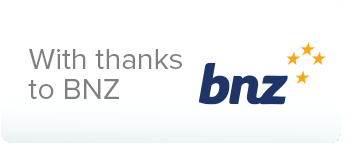
Our friends at BNZ have provided the content on this page. mortgages.co.nz receives no financial benefit in publishing this content, it has been shared to help our readers learn more about the lender products and services available to them.
Purchasing a home as a first-time buyer has only gotten harder as the years have gone on. In 1985, the average price for a house was $56,500, while the average salary was around $17,100. Meaning the average home cost around 3.3 times the average wage.
By 2023, the average price for property in New Zealand was around $895,000. Meanwhile, the average salary was $66,200. So in the space of less than 40 years, the price for the average home had increased to 13.5 times the average salary.
Admittedly, in 1985 mortgage interest rates were a lot higher, sitting around 20%, as opposed to 2023’s roughly 7%. Nonetheless, it’s tough out there for modern first home buyers to achieve a deposit.
But one ‘financial institution’ has been providing consistent support to first home buyers – the Bank of Mum and Dad.
How the Bank of Mum and Dad helps
‘Bank of Mum and Dad’ is a blanket term that extends across any level of family helping first home buyers step onto the property ladder. In 2022, this family ‘bank’ was believed to be the fifth largest ‘lender’ in the country.
The most obvious way the Bank of Mum and Dad can help out is through a loan or gift of cash, helping first home buyers build on their existing deposit.
But support doesn’t always come in the form of a loan or gift – sometimes the family ‘bank’ helps out in other ways to give first home buyers the step up they need, such as providing low or no rent accommodation. This allows prospective buyer(s) to reduce their expenses and save their deposit faster.
Alternatively, the family ’bank’ may use their equity to co-borrow with the buyer, using property they already own or signing on as a guarantor on part or all of the loan. Or they may help with repayments. Another way is through an offsetting account. Most offsetting accounts will allow you to link multiple accounts and use money in your own, your partner’s, a parent or a child’s account, to offset all or part of your home loan.
Regardless of how the Bank of Mum and Dad contributes, there are several considerations that need to be discussed by both sides.
As the Bank of Mum and Dad:
- Start discussions sooner rather than later: The more time you and your first home buyer have to talk over the options, the better – waiting until they’re already negotiating with a lender could lead to complications and additional stress. It’s probably also better if you bring it up, if you’re willing and able to help, rather than waiting for them to ask.
- Don’t leave things to chance: There’s a lot to consider when providing financial assistance, so make sure you get professional advice so you both avoid potential upsets or future complications.
- Be clear: When helping your first home buyer reach their goal, it’s best not to be vague. Are you gifting them the money, or is it a loan? If it’s a loan, what repayment schedule works for both of you? Being clear with the details now will prevent misunderstandings down the line.
As the First Home Buyer:
- Understand your options: It’s important you know what it means to own a home, have a mortgage and the impact of accepting support from your family. If there’s anything you’re unsure about, talk to the family members involved or a professional.
- Make sure you’re prepared: While support from your family will be a big help, you still need to prepare. The bank will carry out its usual checks to see if you’re able to manage and repay the loan, so it’s best to have as much already sorted as possible. It’s also a good idea to live like you already own the house, budgeting like you’re paying your mortgage, rates, insurance, etc.
- Be transparent with your ‘lender’: It’s important you keep open and clear communication with the family ’bank’. Discuss where you are in the home buying process, show them where you’re looking to buy and openly discuss if and how repayments will be paid. It’s key you both know where you stand, so no additional strain or stress is added, and no one feels like they’re over-committed or under-informed.

Lisa McShane
Lisa McShane is the Head of Home Loan Partners and Specialists at Bank of New Zealand (BNZ). With over 29 years in the banking sector, Lisa has honed her skills in customer engagement, team leadership, and financial advising.
Read more »



